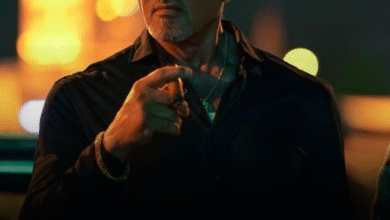Why Tom Hardy Vowed Never to Do a Rom-Com Again—And Has Kept That Promise for 14 Years
OPINION: This article may contain commentary which reflects the author's opinion.
Tom Hardy is widely known for his deep commitment to his craft. As one of the most immersive and dedicated actors in the industry, Hardy’s roles have spanned from intense villains to deeply complex characters. His dedication to authenticity—whether it’s adopting a new accent, transforming his physique, or subjecting himself to extreme psychological preparation—has made him a favorite among critics and audiences alike. However, not all of Hardy’s projects have been as rewarding or enjoyable as his acclaimed performances in films like Bronson, Tinker Tailor Soldier Spy, and Warrior.
Among his diverse filmography, there is one glaring exception: This Means War (2012), a romantic spy caper that remains, in Hardy’s own words, the “most miserable” experience of his career. Directed by McG, the film follows two CIA agents, played by Hardy and Chris Pine, as they engage in a rivalry over the affections of Reese Witherspoon’s character. Despite the premise promising fun, chaos, and romance, Hardy’s experience on set was anything but lighthearted.
A Rare Misstep
At the time, This Means War was a significant departure from the intense, gritty roles Hardy had become known for. After a run of hard-hitting films, including Bronson (2008), Tinker Tailor Soldier Spy (2011), and Warrior (2011), Hardy sought to take a break from his usual serious fare by stepping into a more comedic, romantic role. His reasoning was simple: “I love to do things I hadn’t done before.” However, what seemed like a light and fun project quickly turned into a grueling experience for Hardy.
In an interview, he reflected on the stark contrast between the movie’s upbeat premise and the miserable time he had making it. “I didn’t understand how you could do something which is so much fun and be so miserable doing it,” Hardy admitted. The actor’s disillusionment with the project became evident, and he made a vow to steer clear of romantic comedies in the future. “I probably won’t do a romantic comedy again,” Hardy lamented, as he struggled to find enjoyment in a film that failed to capture the lightness it aimed for.
A Surprise Success with a Dismal Experience
Despite Hardy’s frustrations, This Means War was a commercial success, grossing three times its budget at the box office. However, this financial success was not reflective of the actor’s experience or the film’s critical reception. It remains one of the worst-reviewed entries in Hardy’s filmography, with many critics pointing to its shallow plot and lackluster performances. The film, which mixed romance with espionage, failed to deliver on its promise of humor and excitement, leaving both critics and Hardy disappointed.
In fact, This Means War remains a curious anomaly in Hardy’s career. It was a rare opportunity for the actor to embrace a more carefree role, yet it ended up being a frustrating experience that made him rethink his approach to filmmaking. The movie’s lighthearted premise was at odds with the grim realities of making it, and Hardy’s frustration became palpable.
Hardy’s Post-This Means War Career
Since his time on This Means War, Hardy has stuck to his usual fare of intense, thought-provoking roles. He has not returned to romantic comedies and has instead focused on projects that challenge him both physically and emotionally. Films like Mad Max: Fury Road (2015), The Revenant (2015), and Dunkirk (2017) saw Hardy diving deep into complex, often gritty characters that matched his serious approach to acting.
It’s clear that Hardy’s commitment to his craft has not wavered, and his experience on This Means War hasn’t led him to reconsider his career choices in a broader sense. Instead, it remains a lesson learned—a rare misstep in an otherwise stellar career that highlights the importance of aligning a role with one’s passion and commitment.
Conclusion
This Means War will forever stand as the film that Hardy regrets the most, a stark contrast to his usual intense, transformative roles. Despite its commercial success, the film’s lack of depth and the miserable experience Hardy had making it underscore the difference between a fun concept and a fulfilling creative process. Hardy’s vow to avoid romantic comedies, particularly after this project, stands as a testament to the fact that, even in the world of Hollywood blockbusters, the pursuit of meaningful work far outweighs the allure of something light and breezy.



